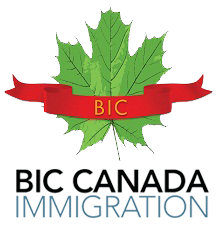Before you apply, you must meet the criteria in seven categories below.
Please refer to section 7 of Ontario Regulation 422/17 and the application guide for more details on each requirement.
1. Work experience
You must have at least 9 months of full-time (or the equivalent in part-time) paid work experience in Ontario, in the same in-demand occupation (same NOC code) as your job offer.
You must have gained this work experience within the three years prior to submitting your application while legally living and working in Ontario.
Full-time work experience means working in a job with at least 30 hours of paid work in a week that amounts to at least 1,200 hours of paid work in nine months.
Part-time equivalent work experience means:
- working in one job for at least 15 hours per week over the course of eighteen (18) months that amounts to at least 1,200 hours of paid work
or
- working in more than one job for at least 30 hours per week for nine months that amounts to at least 1,200 hours of paid work
2. Valid licence or other authorization (if applicable)
If you need a licence or other authorization for the job that you have been offered, you must have it when you apply.
Find out if your job is in a compulsory trade that requires a licence.
3. Language
You must be able to understand, read, write and speak either English or French at a Canadian Language Benchmark (CLB) level 4 or higher.
To prove that you have the mandatory language skills, you must take an approved English or French language test before you submit your application to this stream.
The test must be no more than two years old at the time you submit your application.
For English tests, we accept:
- International English Language Testing (IELTS) – we only accept the General Training test
- Canadian English Language Proficiency Index Program (CELPIP) – we only accept the General test
For French tests, we accept:
- Test d’évaluation de français pour le Canada (TEF Canada)
- Test de connaissance du français pour le Canada (TCF Canada)
Learn more about the English and French language tests
4. Education
You must have a Canadian secondary school (high school) diploma or credential, or its equivalent in another country.
If you completed your studies outside of Canada, you need to get an Educational Credential Assessment (ECA) that proves your education is equivalent to a Canadian high school diploma.
The assessment must be done by one of the following organizations, designated by IRCC:
Each organization charges a different fee and has different processing times. Please review the website of each ECA organization to choose the one that’s best for you.
You must give us a copy of the ECA report when you submit your application. The report cannot be more than five years old at the time you submit your application.
We must be able to confirm your ECA results with the organization that completed it. This means you must authorize the organization to share the results with us (the Ontario Immigrant Nominee Program).
To authorize us to see your ECA results from:
Note: For the other organizations, no additional steps are required.
Please contact the ECA organization directly if you have any specific questions about the process for getting an ECA or how to authorize and share your ECA results with us.
5. Settlement funds
You must have enough money to support yourself and your dependent family members when you settle in Canada.
You can meet this requirement through the annual earnings of your job offer from your employer.
If the annual salary of your job offer is insufficient to meet the settlement funds requirement based on your family size, you can also include one or a combination of the following to make up the difference:
- Funds as demonstrated by the balance listed in bank statements (belonging to yourself and/or your spouse/common-law partner), and/or
- Statements of accounts showing other investments, such as fixed term deposits and mutual funds that can be readily converted to cash.
Learn more about the amount of money you must have available in order to apply (see “How much money you will need”).
6. Intention to live in Ontario
You must intend to live in Ontario after you’ve been granted permanent residence. We determine this by examining your ties to Ontario, which can include doing things such as:
- working or having worked here
- getting job offers, applying to or interviewing for jobs
- studying
- volunteering
- leasing or owning property
- visiting
- having professional networks and affiliations, family ties and personal relationships
7. Legal status in Canada (if applicable)
If you are applying from within Canada, you must have legal status (a visitor record, study permit, or work permit) at the time you apply and should maintain that status until the time of nomination.
